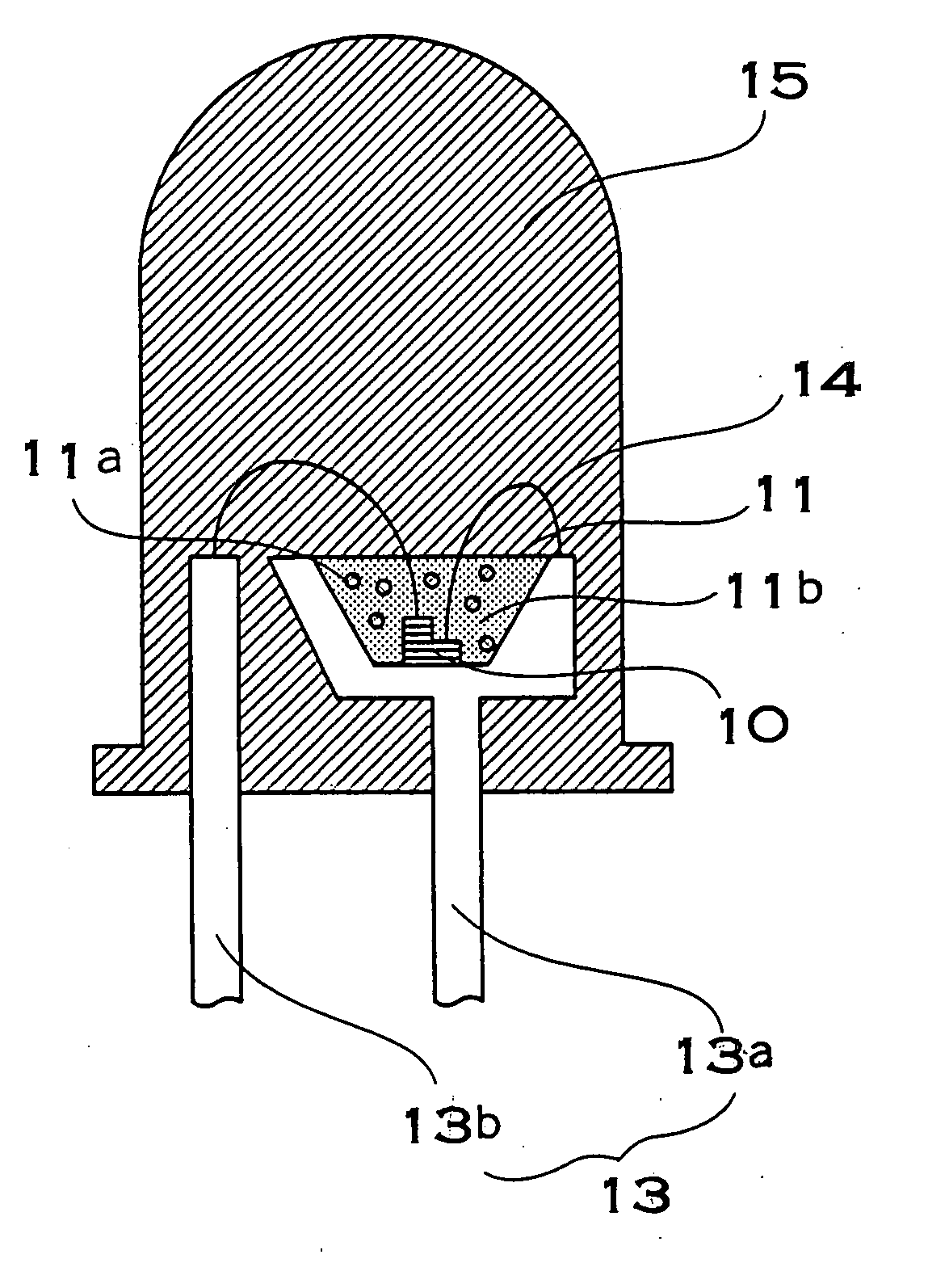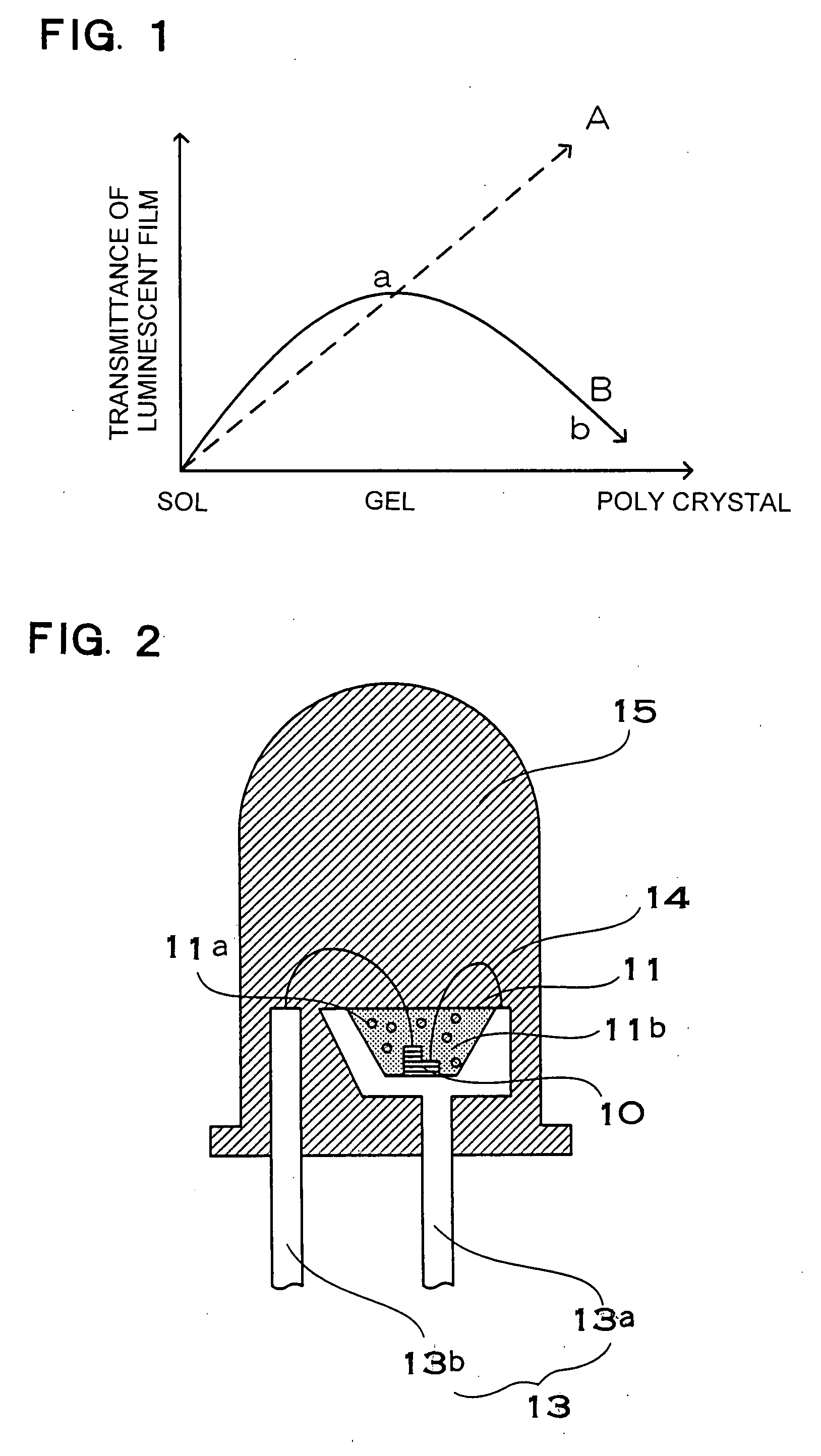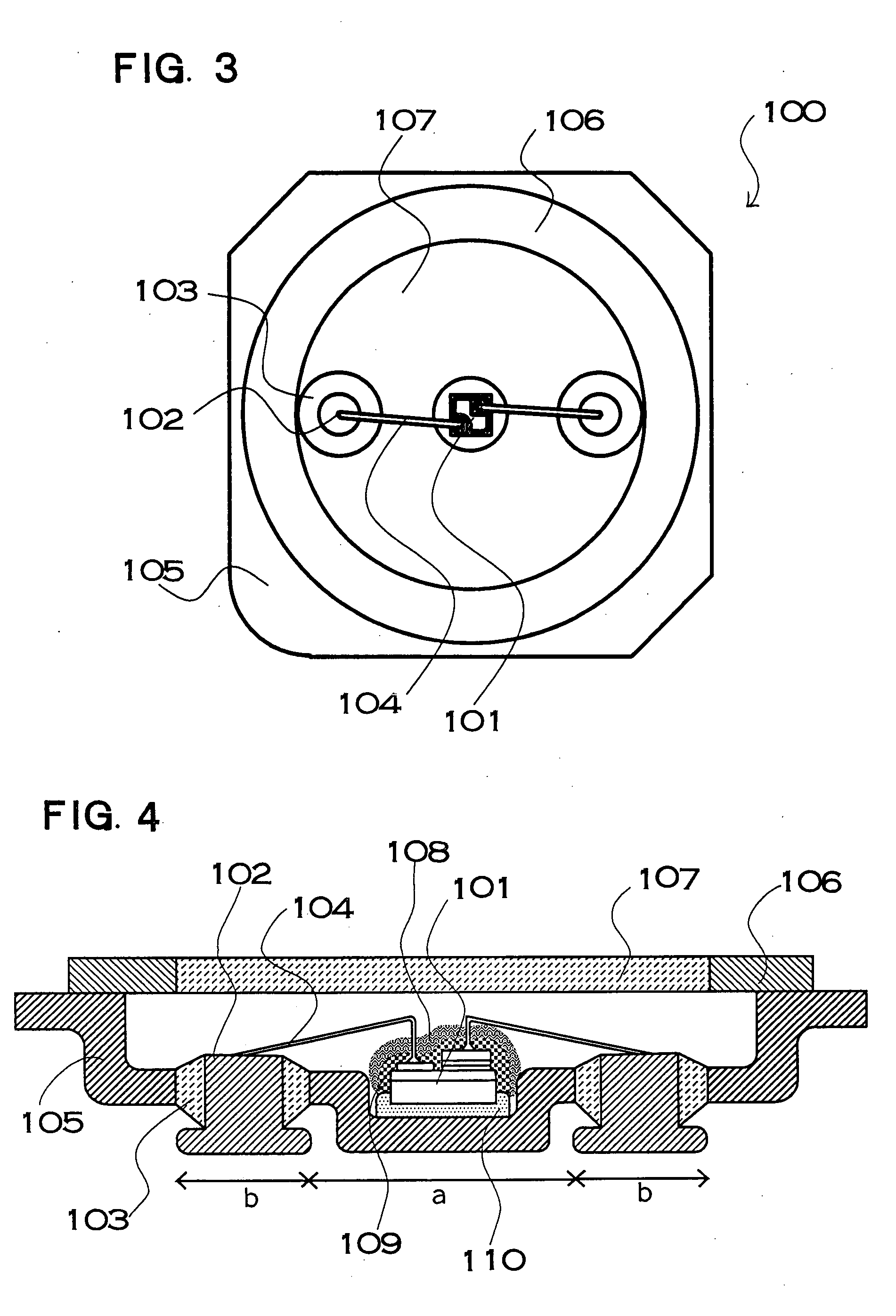Light emitting film, luminescent device, method for manufacturing light emitting film and method for manufacturing luminescent device
a technology of light-emitting film and luminescent device, which is applied in the direction of discharge tube luminescnet screen, discharge tube/lamp details, luminescent composition, etc., can solve the problems of deterioration of resin, more time and energy, and deterioration of film color and deterioration, so as to improve light-outgoing efficiency and reduce the effect of deterioration
- Summary
- Abstract
- Description
- Claims
- Application Information
AI Technical Summary
Benefits of technology
Problems solved by technology
Method used
Image
Examples
first embodiment
[0151] With reference to FIG. 2, a light emitting apparatus according to a first embodiment of the present invention is now described. The light emitting apparatus of first embodiment includes a light emitting element 10, the phosphor 11a, and the luminescent layer 11 composed of the transparent binder 11b containing the phosphor 11a.
[0152] The light emitting element 10 composed of a bullet-shaped LED, for example, is mounted in a substantially central part of a cup disposed on the upper part of a mount lead 13a by die-bonding. The electrodes formed in the light emitting element 10 are electrically connected to the mount lead 13a and an inner lead 13b of a lead frame 13 with conductive wires 14. The Phosphor 11a contains a YAG group phosphor and a nitride group phosphor which absorb at least a part of light emitted light in the light emitting element 10 and emit luminescent radiation of wavelength different from the absorbed light. In addition, the nitride group phosphor can be coa...
second embodiment
[0205]FIGS. 3 and 4 show a schematic plan view and a schematic cross-sectional view showing the structure in the state where an LED as light emitting element is mounted in a metal package, as an example of light emitting apparatus according to a second embodiment of the present invention.
[0206] A package 105 is formed of metal and has a recessed portion a in the center. A base portion b is located around said recessed portion. The base portion b has the two through holes penetrating in the thickness direction. The through holes are opposed to each other so as to sandwich said recessed portion a. The positive and negative lead terminals 102 are inserted into the through holes, respectively, so as to interpose hard glass, which is an insulating member 103, between each lead terminal and the through hole. A lid 106 composed of a transparent window portion 107 and a metal portion is located in the principal plane side of the metal package 105. The light emitting element, or the like, i...
third embodiment
[0252] With reference to FIGS. 8 and 9, a light emitting apparatus according to a third embodiment of the present invention is described. FIG. 8 is a plan view of the light-emitting apparatus. FIG. 9 is a cross-sectional view of the light emitting apparatus of FIG. 8 as seen along the line A-A′. A phosphor member used in the light emitting apparatus according to the third embodiment can be used the phosphor member same as in the first embodiment. A light emitting element 401, which has an InGaN group semiconductor layer with light emission peak of 460 nm in the blue range as a light emitting layer, is used. A p-type semiconductor layer and an n-type semiconductor layer (not shown) are formed in the light emitting element 401. The conductive wires 404 connected to lead terminals 402 are formed on the p-type semiconductor layer and the n-type semiconductor layer. An insulating mold material 402 is formed so as to cover the peripheral of the lead terminal 403, and prevents a short circ...
PUM
 Login to View More
Login to View More Abstract
Description
Claims
Application Information
 Login to View More
Login to View More - R&D
- Intellectual Property
- Life Sciences
- Materials
- Tech Scout
- Unparalleled Data Quality
- Higher Quality Content
- 60% Fewer Hallucinations
Browse by: Latest US Patents, China's latest patents, Technical Efficacy Thesaurus, Application Domain, Technology Topic, Popular Technical Reports.
© 2025 PatSnap. All rights reserved.Legal|Privacy policy|Modern Slavery Act Transparency Statement|Sitemap|About US| Contact US: help@patsnap.com



